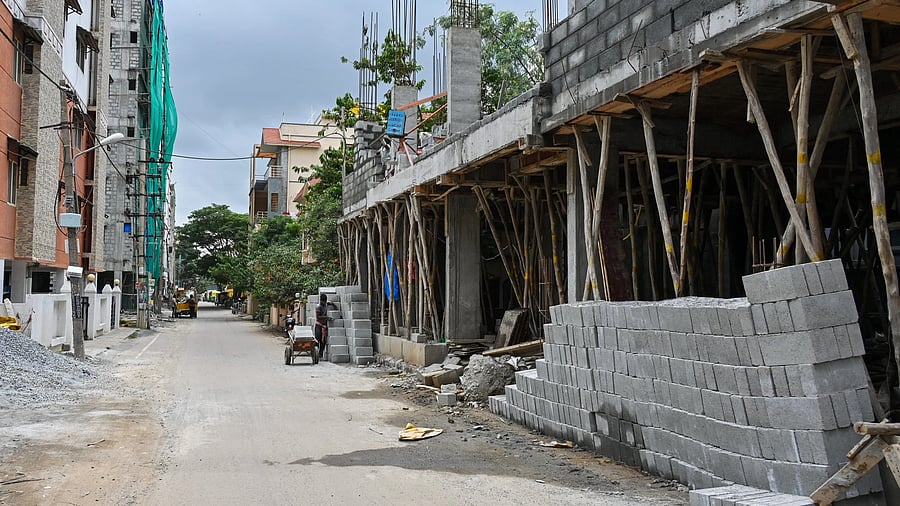
Officials note that illegal constructions would continue to face consequences under the law.
Credit: Special Arrangement
Bengaluru: It's official. The Karnataka government has exempted ground+2 or stit+3 buildings constructed on plots up to 1,200 sq ft from obtaining Occupancy Certificates (OCs).
A government order issued on Tuesday noted that nearly 4,000 such buildings are built annually and that inspecting each one of them before providing an OC will be a strain on manpower. Hence, using the powers under Section 241(7) of the Greater Bengaluru Governance Act, 2024, a decision was taken to exempt them from obtaining OC.
However, after the Supreme Court made the OC mandatory for power and water supply to buildings, lakhs of citizens whose properties did not have OCs were left in the lurch.
According to an estimate, nearly one lakh applications are pending with Bangalore Electricity Supply Company (Bescom) alone.
The government had then announced that a solution would be found to resolve the impasse.
On average, the city's municipal corporations issue about 4,000 new building plan approvals every year for plots not exceeding 1,200 sqft. These plots are also covered under Nambike Nakshe, an automated online software that approves the draft sketch on the day of submission and provides final approval within 15 days.
A meeting chaired by Chief Minister Siddaramaiah on July 3 discussed solutions for those affected by the Supreme Court’s December 2024 order, which mandated that no civic services — water, electricity or sanitation — be provided to buildings in violation of norms or lacking an occupancy certificate.
The ruling also affected property owners who had built as per the rules, but were denied OCs simply because their plots were ‘B’ khata properties. OCs are not issued for 'B' khata sites, a policy deadlock that needs a separate fix.
R Rajagopalan, convener of the BLR Coalition, told DH earlier that on small plots, unscrupulous builders already raise 7–8 floors illegally to meet demand for rentals and PG accommodations. He argued that granting amnesty to violators by amending the law would be ultra vires, since the Akrama Sakrama scheme is still stayed by the Supreme Court.
“Exempting occupancy certificates will remove the only check ensuring buildings are compliant and safe for occupation. Public safety cannot be overstated,” he said.
Officials note that illegal constructions would continue to face consequences under the law.
